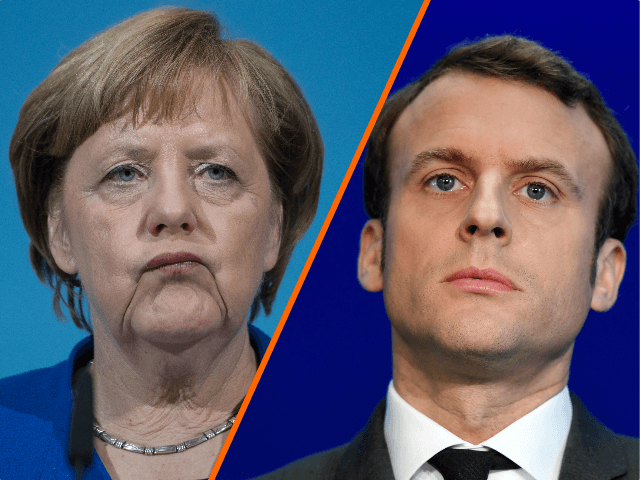The globalist, progressive leaders of France and Germany are seeing record low public approval as patriotism and conservatism grows across the European Union.
France’s President Emmanuel Marcon has seen yet another drop in the polls, with his approval rating falling to its lowest level since he was elected in May 2017.
The former Socialist Party member saw his support drop by five points to 27 percent approval versus 62 percent disapproval, according to a Yougov poll released Friday.
During this time last year, Macron had a 50 percent approval rating with the French people, his falling popularity being helped in no small part by the current scandal surrounding the young premier and his former bodyguard.
Known as the Benalla affair, Alexandre Benalla was caught on camera dressed in police riot gear during the annual May Day protests viciously beating a protestor with critics alleging there was a coverup after the office of the President had failed to report the incident as a crime.
Meanwhile, German Chancellor Angela Merkel’s coalition government — which she had confidently headed for 12 years — fell to 29 percent public support, according to a DeutschlandTrend survey, a record low and the first time the alliance had ever dropped below 30 percent.
Merkel’s approval rating has been dropping since she opened the borders to more than one million Middle Easterners and Africans at the height of the migrant crisis.
She scraped through to win a fourth term in office in the September 2017 federal elections with the Christian Democratic Union’s (CDU) worst performance since 1949, while the anti-mass migration Alternative for Germany (AfD) exceeded expectations and gained ground.
According to the same DeutschlandTrend survey, the AfD hit a new high of 17 percent support, with the poll showing that overall, 74 percent of respondents were unhappy with the German government.
Meanwhile, in the past 12 months, conservative, populist, and patriotic parties have won sweeping victories following elections in Hungary, Italy, the Czech Republic, and Austria, where citizens voted for strong national borders, to protect Christian and European heritage, and to reject globalisation in favour of sovereignty.
Italian Interior Minister Matteo Salvini — from the right-wing League party that formed a coalition with the anti-establishment Five Star Movement — announced last week his intention to form a grand alliance of populists from across Europe ahead of next year’s European Union parliamentary elections.

COMMENTS
Please let us know if you're having issues with commenting.